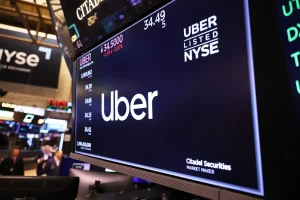If you are interested in opening a franchise, or have wondered how it all works, this next article will be a must-read. We speak to the writer of ‘Franchising for Dummies’, an expert in everything to do with the franchising industry; Michael Seid offers insights into the legal process behind opening a franchise, how lawyers need to address these situations and what you need to be aware of before considering becoming a franchisee.
Can you list three important things business people should consider or be aware about before they venture onto buying into a franchise?
Let me push back a bit first on your question. One of the major issues in franchising today is the relationship between the franchiser and the franchisee. Much of that has to do with expectations and the use of the term “buying into a franchise” which I believe is at the root of the problem. Franchisees buy the necessary assets for their business, but they do not buy a franchise. Franchisees license for a limited period of time and under precise terms the right to use the franchiser’s intellectual property. This misperception is at the root of much of the litigation today between franchisers and franchisees. The term “buying” connotes ownership and the franchisee, while benefiting from the franchisers good will does not acquire any ownership in that good will. What the franchisee acquires is the right to transactional use that good will during the term of its relationship its franchiser. Saying that:
• The first thing a person should consider in looking at franchising in general is whether or not they will be happy as franchisees. Franchisees often view themselves as entrepreneurs but in reality, a franchisee is a “formula entrepreneur” or sometimes referred to as an “entrepreneur lite”. An entrepreneur, by definition, charts their own destiny and makes their own decisions about their businesses. A franchisee, while still a risk taker, must understand that the franchiser will ultimately determine what their business will offer in the way of products and services and the franchisee, even in progressive franchisers, truly has little to say about those offerings. If a person can’t fit into the necessary culture of being a franchisee – the ability to execute someone else’s strategy, they will not be happy as a franchisee. If that is the case, they should instead start their own independent businesses – and possibly down the road become a franchiser.
• The second thing that is essential is to select an industry in which you will not only do well financially, but will be happy in. There are over 120 industries using franchising today and people often do not explore the opportunities fully and instead often look at restaurants as their gateway in understanding their investment options, or allow a franchise broker to steer them toward an opportunity the broker is hawking. Prospective franchisees before actually looking at any particular franchise opportunity need to spend the necessary time exploring directories and other sources of information to understand the breadth what is available to them. Equally important is then taking time to look at each industry and to determine where it is at on its growth curve. Many factors can impact whether any industry still has legs, including today where technology and consumer buying habits are changing as those will have a dramatic impact – even on legacy brands.
• The third and likely the most important thing to understand is that becoming a franchisee is a very complex decision. Franchisers are skilled at positioning their brands to potential franchisees as sound business opportunities and franchise salespeople are gifted at their craft in recruiting franchisees. A prospective franchisee - even an experienced franchisee with investments in other franchise systems - must engage qualified professionals experienced in franchising, including lawyers and accountants.
To assist in this, MSA has published a due diligence workbook for prospective franchisees. The latest version of MSA’s Making the Franchise Decision is available on the companion web site to my latest book Franchise Management and can be found at www.dummies.com/go/franchisemanagementfd.
How do these points differ for those wanting to expand their business into a franchise?
Many companies entering franchising are not candidates to become franchisers. Under the law in most countries, including the United States, there are no hurdles any business must overcome before offering franchises. While this may allow interesting and exciting ideas to come to market, many new franchisers may be untested before they become franchise offerings. A new franchiser does not need to have a working concept – a profitable business, or any working business at all – before they begin to offer a franchise. All that is needed to become a franchiser are offering document and a willing prospective franchisee.
The lack of any hurdles in becoming a franchiser is the reason that many companies that begin offering franchises are no longer doing so three or four years down the road. The percentage of failed franchisers is higher than most in franchising are willing to acknowledge. However, when structured properly, companies ready to franchise, have significant upside for themselves and their future franchisees.
Prospective franchisers need to understand that the lack of hurdles in franchising for new franchisers has allowed companies we call “franchise packagers” to prey on the new franchiser market. These companies offer packaged programmes to which the modifications enable any business to begin offering franchises. The issue is that many of these companies in reality should never franchise or are just not ready yet to begin offering franchise opportunities.
Developing franchise systems is not a legal track but a business track. Having a lawyer draft documents without first spending the time and resources necessary to create a solid franchise strategy is a classic mistake many new franchisers make. Important to understand is that “selling” a franchise is relatively easy. We teach our clients how to generate excitement for their brands and their offerings and many new prospective franchisees do not do their homework in evaluating franchise offerings. However, sustaining a franchise system is quite hard.
The first thing an emerging franchiser should do is to become educated on franchising. My latest book as was the focus of my prior work – Franchising for Dummies – was written for that purpose. There are any number of very good books and an abundance of information on the web that can provide information on franchising. Responsible trade associations, like the IFA, are also an excellent source where people should go before deciding to become a franchiser.
Once armed with some basic knowledge, a prospective franchiser can self-evaluate their business and make some easy determinations of whether or not they are ready to begin the process of becoming a franchiser. My book provides the basic outline of a Threshold Analysis that can give a company some internal understanding if they are ready to franchise. Once that has been done, engaging a qualified professional firm to conduct an independent Threshold Analysis is essential.
Finally, in creating the strategy necessary to determine what is included in the franchise offering, understanding that you are in reality trying to achieve a consistent, sustainable replication of the brand’s offering and its culture, is essential. It is also important to know in advance who the franchise offering is being targeted to. A nuanced approach to understanding franchising by class of potential franchisees and not simply looking at franchising as single unit or multi-unit offerings, needs to be done to be successful in modern franchising. Once understood, the franchise offering should vary between the classes, including the fees and the rights and obligations of each of the parties.
What legal obstacles do businesses often face when expanding into a franchise? What area of law poses the most challenge?
In reality there are few, if any legal obstacles. The laws that govern franchising deal primarily with the offering of franchises and do not deal with the management or structure of franchise systems. While there are some relationship laws, these primarily focus on in term and post term covenants. Franchise law is merely contract law applied to a licensing approach. Because it seems familiar many lawyers experienced in franchising at the level required of knowledge, offer franchise legal services.
While the law is not complex, proper business and legal structure of agreements can be. Many companies may simply copy other franchise’s agreements which is a tragic and avoidable mistake. Franchise structures and agreements need to be based on practices right in for the context of the offering.
Franchise agreements are not meant to be management tools. While legal documents are essential in becoming a franchiser, they are not sufficient. Agreements are long term arrangements and the underlying business will evolve over time. Having a system adept in the capability to evolve, and management understanding franchise dynamics, is essential.
If there are any areas of the law, other than contract law and related relationship laws and case law, these would fall into the buckets of Intellectual Property licensing and those involving laws that impact the nature of the relationship. These would include, but not be limited to: joint employment, independent contracting, vicarious liability, taxes, etc.
Moreover, as an expert in this field, what are common cases you witness being taken to litigation? From your perspective, what could be done to reduce the risk of going to court?
Much of the litigation we see stems from legal documents that are written in an unclear manner. In attempting to make the offering documents as appealing as possible to market franchises, lawyers frequently are not precise in the meaning of the words they use. This is the most significant issue I face when working with clients as a litigation expert.
Also, management style and understanding the difference between managing a company owned system and a franchisee driven system creates significant issues. Likely the most common cases today relate to vicarious liability claims made by consumers or others that embroil the franchiser. The same issues that drive these cases also drive many of the claims by franchisees staff, management and government agencies against the franchiser. Government agencies today are seeking to show that the franchise is responsible for the human resources practices of its franchisees and this creates tax, wage and hour and other complicated issues.
Franchising is not a control strategy. Having brand standards is essential but controlling how franchisees manages their business on a day-to-day basis creates unintended and unnecessary liability. In addition to the terms of the franchise agreements, the broader scope of rights and responsibilities are found in the system’s manuals, training programs and day to day communications. Also misunderstanding the proper role and responsibility of field and headquarters support can be a major trigger. Attempts at unnecessary controls creates opportunities for litigation.
Besides a variety of vicarious and control claims from consumers, employees and government agencies, we also see issues related to ownership and use of the franchisers’ intellectual property during and after the term, claims of improper disclosures, issues related to territorial rights, verbal promises, etc.
We live in a litigious world and litigators are some of the most creative creatures. The best strategy for avoiding litigation is have a proper set of franchise offering documents, manuals, training programmes, support programmes, communications, etc. Understanding the proper way to manage a franchise system is essential and ultimately having a franchise programme that meets a franchisee’s return on investment requirements or desires lessens the risk of litigation from that quarter.
And while others look favorably on arbitration instead of litigation, I don't. I prefer the structure and requirements of litigation and do not find arbitration any faster or inexpensive today, than litigation. Also, while mediation may be an option, it has some risks that I believe can be avoided simply by adopting a proper communications platform within the system.
In general, how do international franchising legislations differ from local regulations and what struggles do businesses often face when deciding to make a step into becoming a global franchise?
While there is a commonality in franchise practice, the laws vary considerably from country to country. When entering any market, how the offering is structured must be based on an understanding of the laws, including taxing, repatriation of funds, supply chain, labeling and of course both franchise law and the customs and practices in that country.
A mistake many franchisers new to international franchising make, is to allow the opportunity to direct the strategy. The phone call from a particular company has the franchiser focused on the sale in that country rather than looking at the opportunity on a regional basis. This often leads to a decision to use master franchising for that country when direct multi-unit franchising would be a better choice had a regional approach been explored.
We structure an international approach for our clients, resulting in identifying global regions to target for expansion. This allows us to consider establishing regional support operations that may allow for direct franchising, and also gives us the opportunity to prioritise the regions to be targeted. A successful direct approach to franchising, assuming franchise recruitment growth is equivalent to other methods and that brand position and retail sales can be equally achieved, will result in a higher enterprise valuation for our clients. Master franchising can be appropriate but in our opinion, is overused. This likely is caused by international franchise brokers’ preference to target this segment, even if not most appropriate for the company, because the commissions can be higher and the resulting payment to the broker quicker.
Understanding that international franchising includes significantly more negotiations than domestic franchising, we create a negotiating box that defines the elements of the offering that are not negotiable. We then can craft parameters for those areas of the offering that may be modified based on the country and the arrangement required by the potential franchisee.
As a frequent speaker at universities, what do you think are important aspects for those in law to consider, in regard to franchising?
There is a difference in understanding the law and being a good lawyer. Legal documents are meant to facilitate a business relationship and finding the balance between risk and opportunity often is outside of many young lawyers’ expertise because of how their professors instructed them on the law. I have spoken at several law schools where the professor is an experienced business lawyer and their approach to the law is rooted in ensuring that their students understand the nature of the business and the transaction they will be advising on, and then focusing on the legal requirements. Often the reverse is true, and we find a multitude of lawyers having formed structures they want to use and requiring the underlying business approach to be modified to fit their legal agreements. To be productive, lawyers need to first focus on the business transaction and then language the agreement in a way to support the deal.
As it specifically relates to franchising, there is a need to recognise that agreements need to be tailored to the underlying requirements of the industry and the company. While there is a commonality in many aspects of franchising, thinking that franchisers are fungible with one another, even in the same industry, is something lawyers need to understand. Also while legal agreements are required, it is the terms in those agreements that are important. Unless a lawyer is willing and able to deliver advisory services at a comparable level of professional rigor as another professional, they should not attempt to provide those advisory services from both an ethical and business obligation to their clients. Mature and experienced lawyers understand the need to work with their client’s management and business advisers and tend to be more productive working as a member of that team, rather than trying to direct the deal be structured.
What other changes are you expecting to witness in the next few years?
We are transitioning from a manufacturing and service economy into a technology based economy. The nature and need for labour is changing rapidly and this is causing major disruption.
Our transition from an agrarian economy to a manufacturing economy took decades and this transition is happening within a much more truncated period. How companies deal with labour issues may create problems. As we are seeing in the UK with the recent announcement by London’s Mayor of his attempt to ban Uber, the gig economy where full-time jobs are replaced by part time or independent labour, creates disruptions to labour unions and what were considered standards of human resource relations. Using touch screens, apps and bio metrics to place orders and robots to cook the food creates complex labour disruptions. Changes to the retail base, as Amazon deliver 90% of what we need, will change the way we go to market as businesses.
The question will be how the government and businesses deal with this change. Protective actions like those taken in London are short sighted and counterproductive as Londoners moved to Uber because it met their needs better than traditional taxis or the underground. We can all look back on jobs that no longer exist and those that likely will be eliminated in the next few years because of technology or cultural changes.
As an experienced social franchiser, I see the use of social franchising as a replacement to traditional NGO approaches to delivering product and services to the poor at the bottom of the Pyramid in Africa, Asia and elsewhere a trend that will accelerate in the next few years. Social franchising where it is being used properly outperforms traditional NGO approaches both from a cost perspective but also from a performance measure. Social franchising also lays down the foundation for further commercial and job growth in markets because of its business approach. I see social franchising having a major transformational impact on creating new economies in a very positive and possibly unexpected way.
Still there will be resistance to this change as it challenges traditional methods but over time, donors, investors and government agencies that fund NGOs will move in this direction simply because it works so well.
Michael Seid
Managing Director
MSA Worldwide
94 Mohegan Drive
West Hartford,CT. 06117
(860) 523-4257
www.msaworldwide.com
mseid@msaworldwide.com
Michael H. Seid is the founder and Managing Director of Michael H. Seid & Associates, LLC, (“MSA” or “MSA Worldwide”) a provider of domestic and international franchise advisory services.
During my professional career I have been a senior operations officer, financial executive, consultant or accountant for companies within the franchise, retail, restaurant, hospitality, healthcare, education and service industries.I have consulted both domestically and internationally for companies on the appropriateness of franchising, licensing and other methods of down-stream distribution of products and services; the design, development and implementation of franchise and licensing systems; and, for established franchisers, non-franchisers and other multi-unit operators.
Since 1987 through the present, I have primarily been a consultant to the franchise industry. I graduated from Long Island University with a BS in Accounting in 1975 and obtained my CPA in New York State in 1978. During the period 1970 through 1976, I was a member of the US Army Reserve and was honorably discharged in 1976 with the rank of Staff Sergeant.
I have published numerous articles on franchising. I am the author of Franchising for Dummies, published by Wiley Publishing, Inc. My co-author for Franchising for Dummies was the late Dave Thomas, Founder of Wendy’s International.
According to the International Franchise Association, MSA is “the leading strategic and tactical advisory firm in franchising.” Our practice is diverse and while primarily focused on franchising, we support our non-franchised clients in a host of alternative downstream expansion strategies. Our reputation has been built on being innovative with many of franchising’s best practices originating within our firm. MSA’s clients include small emerging brands to some of the leading franchisers and non-franchisers in the United States and internationally. MSA Worldwide also provides other professional services including but not limited to manuals; training programs; franchisee recruitment strategies; franchiser expansion strategies; real estate site selection and site development; franchisee advisory councils; franchise relations; joint-employment; crisis management; change strategies; litigation support and the strategic restructuring of established companies.
My primary practice focus is as a strategist for our clients in their domestic and international systems. Approximately 10 to 15 % of my practice time is in litigation support.




















